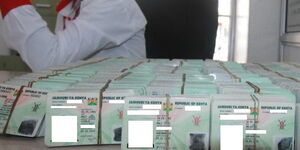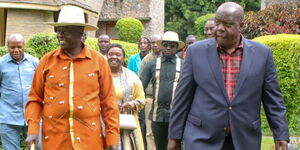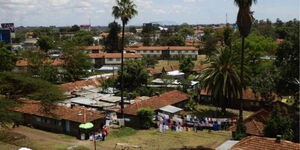Learners in Junior Secondary Schools (JSS) will face suspensions and expulsion in accordance with the new directives released by the Ministry of Education.
According to the Guidelines for the Implementation of Secondary School Education released on Monday, January 23, learners in Grades 7, 8 and 9 would be held individually responsible for participating in mass indiscipline as prescribed in the Basic Education Regulations 2015.
According to the Basic Education Regulations, 2015, alluded to while writing the guidelines, the head of a Junior Secondary School would be compelled to suspend a student for repeated and persistent mistakes.
The Act stipulates that a head teacher would be forced to suspend a student if their indiscipline case is likely to threaten the safety of the other learners in the institution.
"The head of the institution shall issue the learner, with a suspension letter addressed to the parent or guardian indicating the nature of the indiscipline and specifying the date the learner, accompanied by the parent or guardian, is required to appear before the Board of Management of the institution," Basic Education Regulations, 2015, read in part.
According to the Act, a student would be deemed unruly if involved in physical fights, bullying other learners, playing truant, cheating in examinations and abusing teachers or other persons in authority.
Others include defiance of lawful instructions and drug trafficking or substance abuse.
"learners shall be deemed to have participated in mass indiscipline in the institution if they jointly take part in unlawful demonstration, boycott of classes or meals, the destruction of school property and invasion of other institutions, shopping centres or homesteads," the Act stipulates.
School heads would also be forced to close institutions within 24 hours for mass action.
According to the Act, students in grades seven, eight and nine would also be compelled to seek admission to other schools following recommendations from the Board of Management (BoM) and approved by the County Education Board.
Approval by the County Education Board will lead to the expulsion of a student. However, aggrieved parties can appeal the decision.
The new regulations for Junior Secondary Schools will be subjected to public participation.
"JSS leadership shall establish and keep a register of major and minor indiscipline cases, in accordance with approved protocols," the Junior Secondary Guidelines read in part.
However, the Ministry of Education rolled out mentorship programmes to avoid indiscipline cases. Besides rolling out mentorship programmes, the government launched plans to help parents make key decisions involving students' meals.












